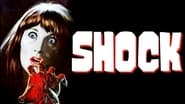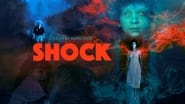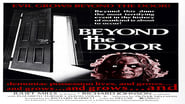Matialth
Good concept, poorly executed.
Abbigail Bush
what a terribly boring film. I'm sorry but this is absolutely not deserving of best picture and will be forgotten quickly. Entertaining and engaging cinema? No. Nothing performances with flat faces and mistaking silence for subtlety.
Arianna Moses
Let me be very fair here, this is not the best movie in my opinion. But, this movie is fun, it has purpose and is very enjoyable to watch.
Kien Navarro
Exactly the movie you think it is, but not the movie you want it to be.
Mr_Ectoplasma
"Shock" has Dario Argento muse Daria Nicolodi playing Dora, a housewife who returns to the home she shared with her deceased husband with her second husband and young son from the former marriage. On edge as it is, things become increasingly unsettling in the home when she is plagued by visions, apparitions, and strange behavior from her child—behavior that is reminiscent of her ex-husband.Technically Bava's final film, "Shock" seems to be one of the famed director's least-praised and most criticized works. Looking at his career trajectory, the film seems to be something of a return to his earlier roots, which were heavily characterized by the supernatural as opposed to his slasher and gialli outings ("A Bay of Blood," "Blood and Black Lace"). The film is a through-and-through supernatural horror movie, and what's perhaps most brilliant about it is that Bava paints it with an ambiguity that inclines the audience to take Dora's supernatural encounters as evidence of psychological meltdown, but he flips the script enough times to leave the audience thoroughly discombobulated.On a visual level, the film has more in common with other late '70s Italian horror films than it does with the aesthetic choices Bava is typically known for, but it is no less a visually dazzling movie. The cinematography is gorgeous, and there are a handful of brilliant camera tricks throughout, most memorably toward the frenetic and terrifying finale. On top of (and in some cases, because of) that, the film is just legitimately creepy, from the premise itself to the way Bava visually represents the horror on screen. The appearances of Dora's deceased husband are bizarre, startling, and sinister, and become increasingly disturbing as the film progresses; the visual flair Bava employs in these instances has been obviously influential on a slew of contemporary films. Nicolodi plays the distressed heroine here phenomenally, toeing the line between unhinged matron and terrorized housewife, and the audience never quite knows what to make of it until the script comes barreling down in the last twenty minutes. The film's conclusion is truly among the greatest finales of any haunted house film I've ever seen. The tension and dynamism that come out as the film spins out of control is absolutely transfixing, partly because of the performances, and partly because of the maintained stamina of the film.Overall, "Shock" is a fantastic haunted house film, and is probably Bava's most profoundly underrated work. The script is terrifying in all of its initial mundanity, and becomes explosively creepy as the heroine finds herself increasingly tormented. Beautiful camera-work and the somber country house setting accentuate the creepiness factor exponentially, and Bava's visual flair acts as mere icing on the cake. I am quite frankly baffled by the less enthusiastic responses to the film. "Shock" may not be "signature" Bava, but it is profoundly moody, creepy, and utterly mesmerizing. 9/10.
Michael_Elliott
Shock (1977) ** 1/2 (out of 4) Dora Baldini (Daria Nicolodi) moves her new husband (John Steiner) and her son (David Colin, Jr.) from a previous marriage into the house that she once lived with the kid's father who committed suicide. It doesn't take long for strange things to start happening and the mother believes that the dead father has possessed the body of his son. SHOCK has a pretty bad reputation, which I think is somewhat unfair for a few different reasons. I think a lot of people automatically hated this picture because it was originally released in America as BEYOND THE DOOR II and many were upset that it had nothing to do with the 1974 picture. Another reason people hate this film is because it's not your typical Italian horror film as there's not any real gore and for the majority of the running time there's not a single thing that happens. I think SHOCK really is the perfect example of a very talented director being able to take a rather lackluster screenplay and a low budget and working some magic with it. There's no doubt that Mario Bava was a genius that could do things with a limited amount of funds and he does a pretty good job here. There are several great scenes that are really brought to life by the director's style and this includes the various hauntings. When the horror elements finally kick in they're pretty effective including a now famous scene involving the little boy running up to his mother. I certainly won't spoil what happens but it's certainly a creepy little sequence. I thought Bava did a pretty good job at covering the psychological elements of the film as we really do seem to get into the mind of Nicolodi as she starts to crack under all the pressure she's under. Speaking of Nicolodi, she turns in a fine performance as all of her emotional states are perfectly captured and I thought she was very believable as the tortured soul. Steiner is also good as the caring husband and Colin, who also appeared in BEYOND THE DOOR, isn't too bad. What really keeps this film from being more is the screenplay, which is pretty mediocre to say the least. I think the entire plot involving the suicide is pretty predictable and there's really not any shocks. If the term "by-the-numbers" means anything to you then this film is the perfect example of it. When you see how bland the screenplay is, it's even more impressive that Bava was able to do so much with it. SHOCK is certainly a flawed movie but the effective moments make it worth sitting through and it certainly deserves a better reputation.
GroovyDoom
Having recently discovered "Twitch of the Death Nerve", I decided to finally give "Schock" a whirl. Imagine my joy when the film opened very similar to "Twitch of the Death Nerve", with the camera exploring the deserted location where our film will take place, a similar seaside locale featuring an unusual house. Dora has returned to this house with her small son Marco and her second husband, Bruno. We learn that Dora's first husband, Carlo, died under mysterious circumstances; it appears that the man's unbalanced psyche and drug abuse led him to commit suicide by drowning himself in the ocean. Dora has returned to their former home, convinced by Bruno that they would be better off making use of the house rather than selling it. Dora, however, suffered a mental breakdown at the time of her first husband's death, and strange feelings of dread begin to overtake her. Marco begins to communicate with an unseen presence, transforming from a happy child to a devious, lurking presence in the home. Dora seems to be headed for another breakdown.Unlike some of Bava's other work, the plot here is negligible. It doesn't hold up under consideration, and it's not very involving in the first place. Some viewers may be frustrated by preconceived notions that the film will be about the demonic possession of a child, which it is not. It's really about Dora and her fragile mental condition being unhinged by supernatural elements. If it were not for Bava's strong visual style, this movie wouldn't have a reason for being. It's not as good as his earlier work, mostly because of the weak script. It also doesn't help that the movie occasionally lapses into camp, such as a scene that depicts a near-disaster on an airplane where the passengers simply freak the hell out while the camera tilts wildly about.Dubbing is often problematic in Italian films, especially ones involving children as main characters. In this case, Marco's voice seemed to have been actually performed by a child instead of an adult speaking in falsetto, which is the best any of us can hope for. There are a few disturbing moments involving him, including one where he asks to sleep with Dora and then fondles her throat in an erotic manner while she is sleeping, his hand appearing as the hand of a rotting corpse. Sadly, another crucial shock involving Marco is given away in the film's trailer, which I would advise that you avoid before watching the movie.I can't forget to mention the score by Goblin, working under the name Libra here. It's memorable, while not as effective as their score for "Suspiria" done around the same time. One ingenious shot combines a very weird musical riff and a ghostly white figure circling a room. Ultimately this overlap between the style of Bava and Argento hurts "Schock"; even though Bava was doing things like that decades before Argento, in 1977 it was Argento who was at the top of the game. Even though "Schock" isn't Bava's best moment, it still delivers an effective haunted house thriller, with the disjointed atmosphere of classic Italian horror.
MARIO GAUCI
I had first watched this via the English-dubbed version called BEYOND THE DOOR II; I never bothered purchasing Anchor Bay's initial DVD release (either as a stand-alone disc or when it was paired with Andrzej Zulawski's delirious Possession [1981], since I already owned that one) – but if it's included in a subsequent edition of "The Mario Bava Collection"... Anyway, Bava's cinematic swan song, unfortunately, isn't one of his more successful efforts. The presence of female lead Daria Nicolodi and Italian rock band Goblin (billed as "Libra") on the soundtrack, conjures up a sub-Argento atmosphere – which rather muffles the elder maestro's attempts at putting his personal imprint on the film; in fact, while Bava's directorial skill is evident in a few individual sequences, the overall color scheme is atypically drab for him! Besides, the narrative is pretty old hat: a woman arriving to live in her old home with a second husband in tow is haunted by the ghost of her first spouse, who died in mysterious circumstances; this is done as much through hallucinations suffered by the wife (who has recently recovered from a nervous breakdown) as the 'possession' of her young son by his father's spirit! The boy (played by David Colin Jr., who had tackled a similar role in BEYOND THE DOOR – hence the misleading assumption that this film is a sequel to it!) is truly insufferable, nor is any sympathy evoked for the dead man (a former junkie). On the other hand, John Steiner (playing husband No. 2) is a likable leading man and, even if the sheer amount of accidents and near-escapes which befall her provokes unintentional hilarity, Nicolodi's role here is probably the best showcase she ever had; Ivan Rassimov, another "Euro-Cult" regular, is on hand as the heroine's shrink (who's eventually called upon to treat the kid as well).The final revelation – involving the first husband's real fate and Nicolodi going off her rocker once again – is well enough staged but offers no surprise whatsoever for hardened genre aficionados; finally, the main theme felt oddly familiar to me: I'm sure I heard it in a recently-viewed film, but I'm not sure which one...







